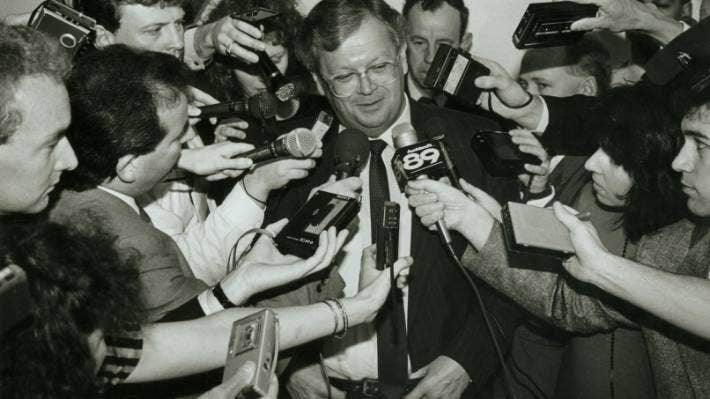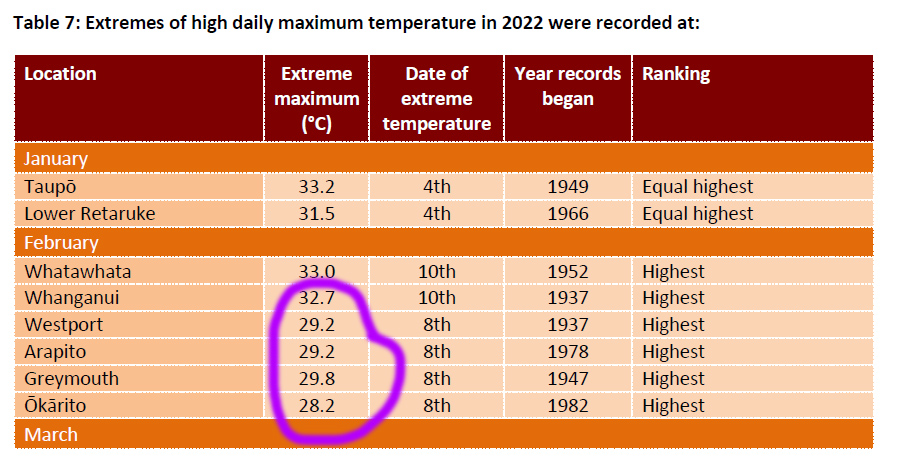
FAMILY MAN…WEATHER MAN…HIS OWN MAN
Nicholas Cage is one of Hollywood’s most complex actors and fascinating personalities. The son of a literature professor (and nephew of Francis Ford Coppola), Cage was once expelled from primary school – yet went on to star not only in blockbuster action flicks like Face/Off and Con Air, but in richly complex character-driven films including Leaving Las Vegas, Being John Malkovich, and Adaptation. Today, Cage is on the brink of new milestones: not only does he have a slew of new movies on the horizon, but a soon-to-arrive baby as well. The 41-year-old Cage recently sat down with JORDAN RIEFE at the Beverly Hills Four Seasons to discuss his latest ventures, fatherhood (and how his powerful relationship with his own dad affects his work today), and what might be his most controversial project to date: his involvement with Oliver Stone’s film about 9/11.
Q: Is it fair to say you’re not a method actor?
A: The idea that I’m not a method actor implies that I don’t subscribe to any particular method of performance, and I do have my own method. At the time I agreed to do The Weather Man I was going through a divorce and I was trying to figure out how I could take a negative and turn it into a positive. And when I received the script for The Weather Man, I thought, ‘Oh well, here’s a parallel.’ Sometimes I choose movies that help me, like a therapy, help me do something positive with a negative emotion. And The Weather Man was an opportunity to take this well of feeling that I had and just funnel it into Dave Spritz. It was my producing partner who brought it to me and I said, ‘This is really right for me at this time because I have a lot of stuff I want to get out.’ Dave and I were going through similar experiences and so it became an overlay, if you will, of my life and David Spritz’s.
Q: How many times have things been thrown at you?
A: I wish I could be more colourful and say all the time but I’ve never had anything thrown at me; at least not food. There have been times in the past when girls have thrown glasses at me.
Q: How much cash do you normally carry in your wallet?
A: Do you want to come and look? You know, I don’t even have my wallet or any cash on me. But I do go to the supermarket. I just went to the market and bought about 20 packages of Gillette shavers. I buy in bulk. And I used one this morning.
Q: How difficult was it to play someone fumbling through fatherhood?
A: I think no matter what walk of life we’re in or who we are, we all have that connection with our father because we are small in the beginning and they’re big so there’s this awesome regard for dad. And on top of that, my dad is a professor of literature so he’s very, very smart. So I was always thinking how I can aspire to be him? There was this intimidating aura growing up with a university professor, but yes, I did use my own feelings about my own father.
Q: There’s a scene where you’re recognized standing in a queue at the DMV [Department of Motor Vehicles] and you’re not very pleasant to the person who recognizes you. Can you relate to that?
A: I don’t relate to it because I have bad relations with people on the street or at the DMV. I try to make an effort to behave well and I know if it weren’t for my fans I wouldn’t be here. So they’re very important to me. I know what it’s like to meet someone you admire and have them be a complete jerk. But before I was famous someone impounded my car and they weren’t very nice about it. It was an old car once owned by Dean Martin, which is ironic because I now live in Dean Martin’s old house. They were so rough about it. There was no reason to impound it and there were dents all over it. I remember just wanting to go and get my car by any means possible. I think if we’ve all been frustrated by bureaucracy, whether you’re the weather man, you or me.
Q: You’re about to become a father again. Are you excited?
A: Without going into detail, I’ve got 15 years of experience now so I’m very ready.
Q: You talked about your very smart father. Can you talk about what it was like working with Michael Caine and bringing your own experiences to your screen relationship with him?
A: It’s always fascinating to work with the best and Michael Caine is obviously one of the best, so I wanted the opportunity to study him and look into his face. I was ecstatic to work with him, and he’s so friendly. And as for my father, yes, it does relate. He had that aura bout him, but what I will say about my dad is…I’m going to go on the record and I’m not a high school drop-out, but I wasn’t a great match for school. I went to my dad and said, ‘This isn’t for me, I want to act. This is affecting my self-esteem; I’ve got to get out.’ So he said, ‘That’s fine, but just get your High School Equivalency’.
So I did and left and went right to work.
Q: Why does your character have such trouble communicating with women?
A: It’s the battle of the sexes. Do you have trouble communicating with men? We have difficulty from both sides comprehending what exactly is it we’re thinking. Dave is on the receiving end of that because he’s not thinking all the time, he’s forgetting things like the tartar sauce. For her, something as mundane as tartar sauce is enough to tip the apple cart, but we know it’s more than that. I’m very sensitive. I’m even sensitive to the weather.
Q: I’m intrigued by the Dean Martin connection. Have you ever felt his presence?
A: They’re both coincidences. I didn’t know it was his car when I bought it and it wasn’t because it was his house that I bought the house. It was about 3 a.m. one night and I was sleeping and I heard this faint voice singing, ‘That’s Amoré’. And I was like, ‘Please, I’m trying to sleep.’ I’m kidding. And what’s really weird is that was the theme song at the end of Moonstruck.
Q: It looks like you’re going to have six or seven films out next year and it does appear that you work incessantly. Do you feel the need to work constantly and will there be any slow-down with the impending birth of your child?
A: That’s just the way it works out sometimes. I haven’t worked since National Treasure, which was a year ago. I try and make two movies a year. To me, that’s not too much. On top of that, I like to work. It’s part of my spiritual belief. I want to do something with my time that’s productive. I want to serve and I feel I’m serving myself and serving you by working. I don’t want to sit around by the pool luxuriating with a margarita. That’s just not what I want to do. So yeah, work is just part of my principles.
 Q: But will you slow down once your child arrives?
Q: But will you slow down once your child arrives?
A: Probably yes.
Q: Gore Verbinski was the one throwing the fast food at you and he reportedly enjoyed it. What was that like?
A: Yes. There are some good photos of him throwing chicken nuggets at my head. And I think he did enjoy it. He made sure it was him every time.
Q: Dave is often uncomfortable in his own skin. When are you uncomfortable in your own skin?
A: When I have to spend five hours in a room doing one TV interview after another knowing that everything I say will be a matter of public record for the rest of your life, that makes me pretty uncomfortable in my own skin.
Q: What do you do when you’re angry?
A: George Washington once said, ‘When you’re angry count to 10. When you’re really angry count to 100.
So I do that and also I use film, again, to try and steer that anger and turn it into a positive emotion.
Q: Do you still do archery?
A: I don’t but there aren’t too many things I’ll say I’m a natural at. But when I started doing archery it was the first time I’d found something besides acting that I felt I could really do. I did all that archery in the film and I’m happy to say that. I really enjoyed it.
Q: You were talking about the experience of being a father again. What will you do differently this time round?
A: That is a brilliant question and I’m sure anything I say to that will reveal a lot about me, my character and every invention of my mind, but I want to be very careful about respecting his privacy.
Q: What small part of Dave will you carry with you?
A: I’ll carry him with me for the rest of my life and he’ll be around after I’ve gone. He’ll be around because he’s on film. So we’re connected. I don’t know how else to answer that. I’m really happy with the movie.
 Q: Can you talk about your character in Ghost Rider?
Q: Can you talk about your character in Ghost Rider?
A: Again he’s a man trying to turn a negative into a positive and, as I said before, I’ve been trying to take movies and do something positive with the negative feelings I’ve had. The character in Ghost Rider had something horrible happen to him and he’s making something positive out of it.
Q: You have a great relationship with your screen daughter. You don’t have a daughter yourself, so did you just particularly like her?
A: I did like her very much but I also like children. I’ve been around children a lot. They’re very close to their hearts. There’s not a lot of filtering that goes on and I like that integrity.
Q: You’ve talked a lot about turning your negativity into positively. Are you over all that now?
A: Yes. I think things go in cycles, they wax and wane. I’m just trying to get better at negotiating the waves. Right now, I’m trying to be more neutral rather than ecstatic or depressed. I’m trying to be right in the middle and to be better in all ways – as an actor, as a father and as a husband. I’m not saying I have any control over my destiny but I’d like to be better at surfing the waves of life.
Q: You’re starting the Oliver Stone 9/11 film next month. What can you tell us about that?
A: I’m still finishing my film The Wicker Man, and then I’m going to go to New York. I know Oliver is going for a cinema verite feel. Oliver and I have been trying to work together for years. And it’s not so much about the buildings falling down as what happened amongst this family of men – which of them survived and how they coped. It’s really about the human condition.
Q: You’ve made a few films about families. Is that a subject that appeals to you?
A: I’ve really wanted to make a family drama. I think it’s a genre that’s just really good for people. I think people can usually learn something. But it’s also the hardest kind of film to make. It can collapse into saccharin or become episodic like a TV show. So my goal was to do something a bit edgy and I think I found a really happy marriage in this film.







